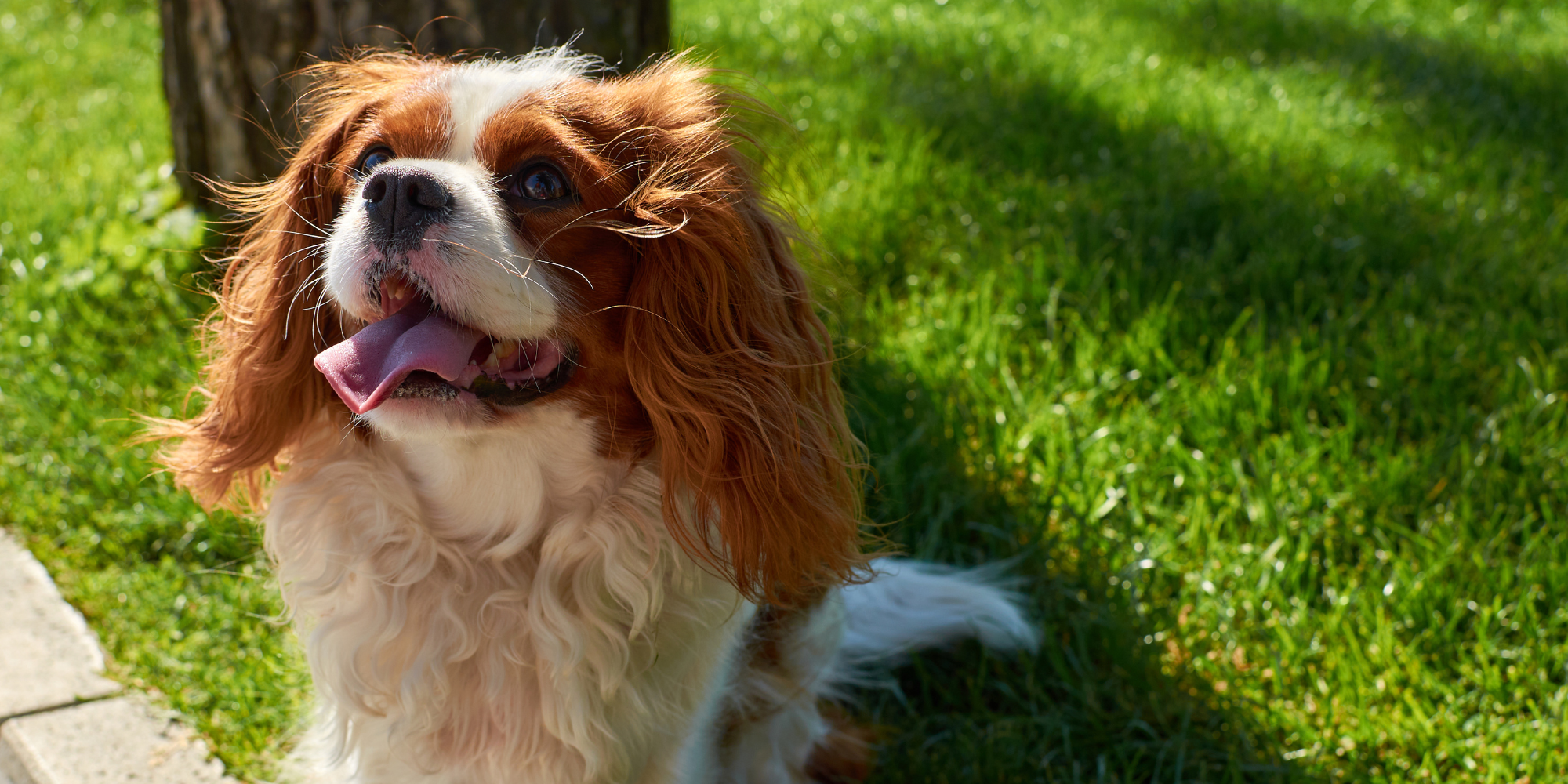Introduction
Their loving and loyal nature defines Cavalier King Charles Spaniel temperament.
- This breed is friendly, gentle, and thrives on companionship with their family
- They are ideal for families, singles, and the elderly due to their adaptable personality
- Cavaliers have a playful yet calm demeanor, making them great indoor pets
- They are social dogs that love being around people and get along well with other pets
- Understanding their temperament helps ensure a joyful bond with your Cavalier
1. Affectionate and Loving Nature
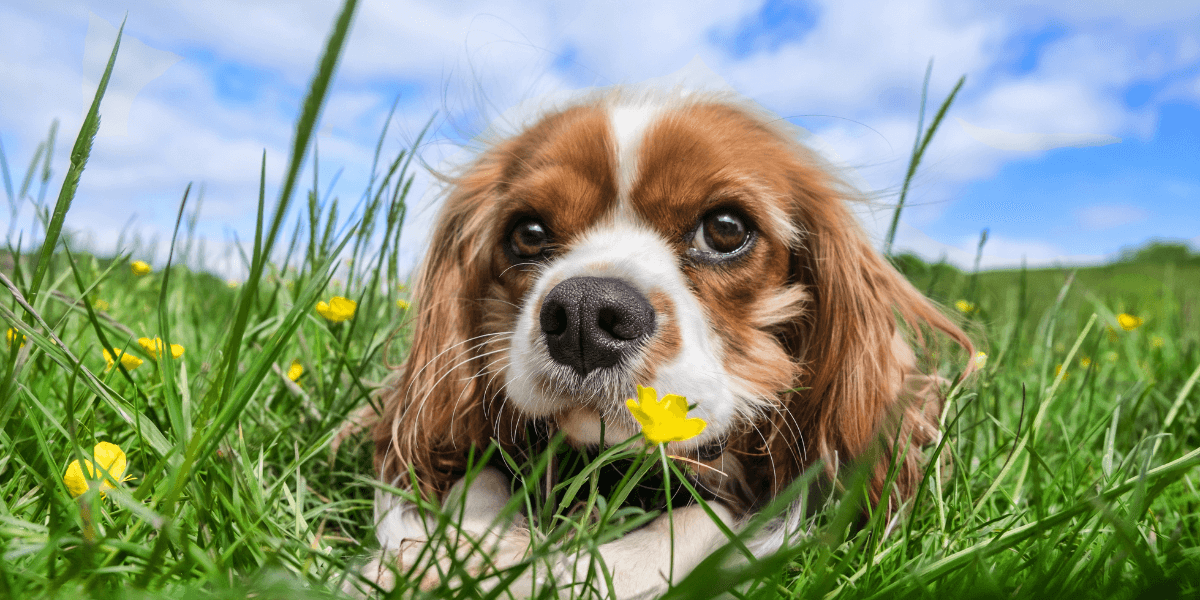
Cavaliers are renowned for their deep and enduring affection for their owners.
- Loyalty: Cavaliers build strong bonds and show unwavering loyalty to their family member
- Cuddly: They enjoy snuggling and being close to their human companions
- Companionable: Cavaliers love spending time with you, whether on the couch or on a walk
- Gentle: Their gentle nature makes them perfect for families with young children
- Sensitive: They can sense your emotions and respond with empathy and love
- Comforting: Cavaliers often provide emotional comfort making them excellent therapy dogs
2. Social and Friendly Behavior
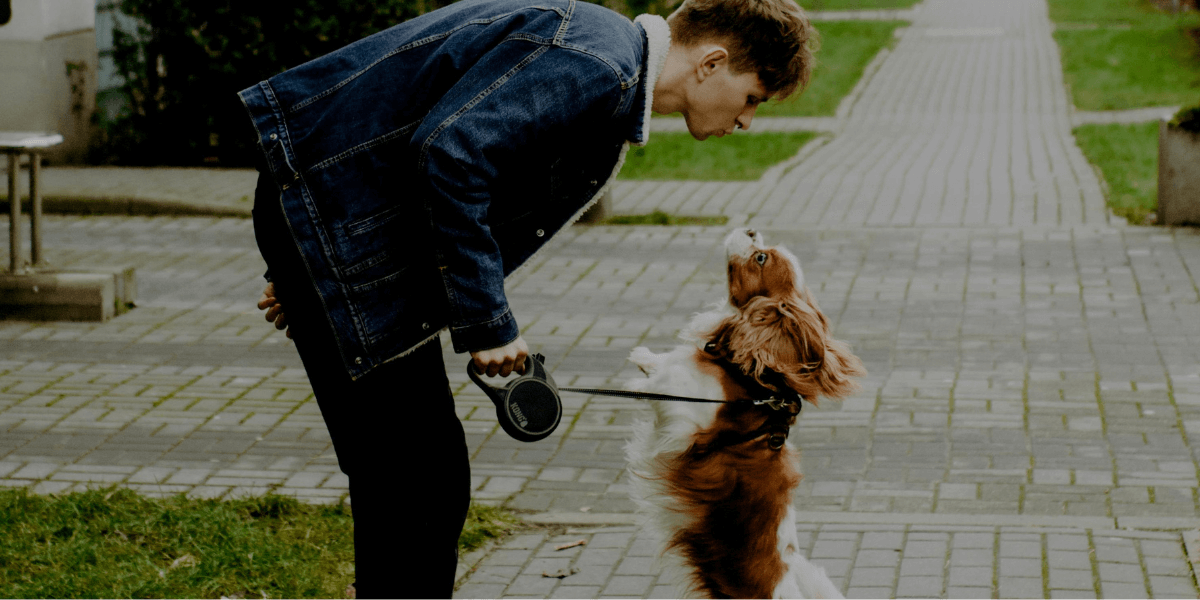
Cavalier King Charles Spaniel's temperament is highly social and friendly with everyone.
- Friendly: They are warm and welcoming to strangers, rarely showing aggression
- Playful: Cavaliers enjoy playtime with both people and other dogs
- Adaptable: They adjust well to new environments and social situations
- Tolerant: This breed is patient and tolerant making them excellent with children and pet
- Outgoing: Cavaliers are confident and outgoing, eager to make new friends
- Non-aggressive: Their calm and gentle temperament is perfect for harmonious family life
3. Intelligence and Trainability
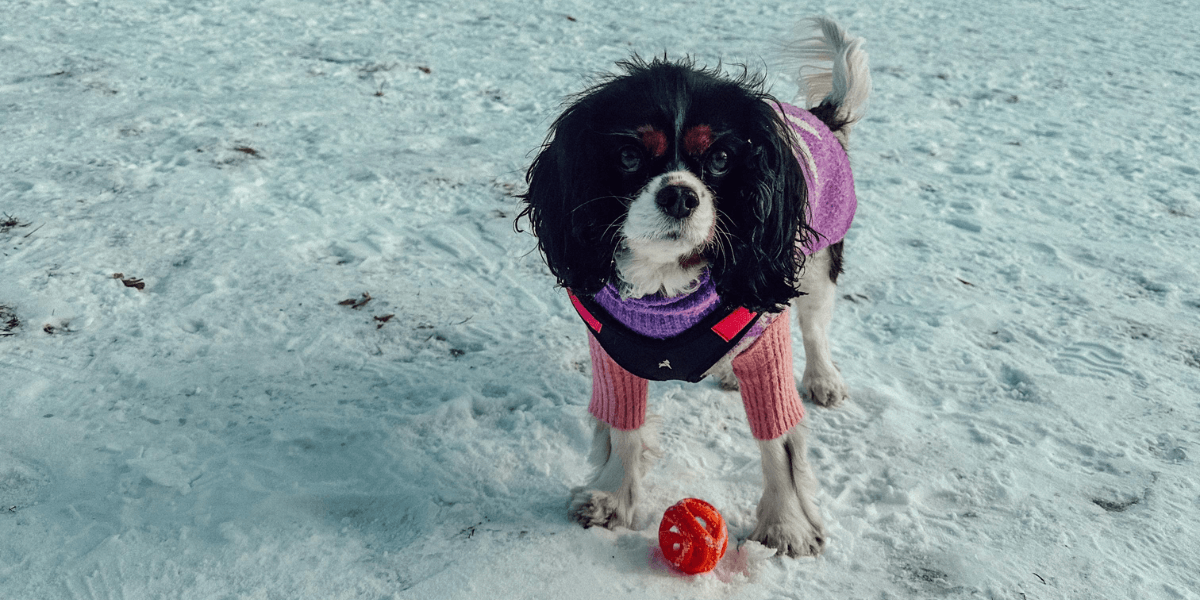
Cavaliers are intelligent and eager to please, making training easier.
- Quick Learners: They pick up commands and tricks quickly due to their intelligence
- Eager to Please: Their desire to make you happy enhances their trainability
- Positive Reinforcement: Cavaliers respond best to training with positive reinforcement
- Consistency: Regular training sessions help reinforce good behavior in Cavaliers
- House Training: With patience and consistency, Cavaliers can be easily house-trained
- Problem Solvers: Their intelligence helps them tackle simple puzzles and challenges
4. Playful yet Calm Disposition
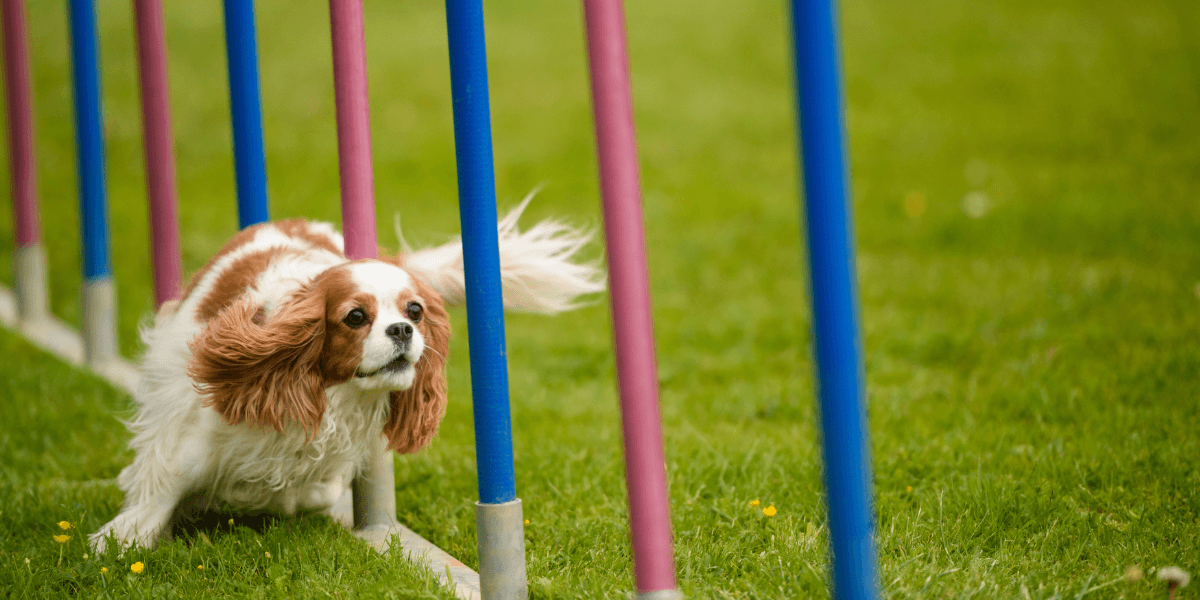
Cavaliers balance playfulness with a calm, relaxed demeanor.
- Energetic: They have bursts of energy and love engaging in fun activities
- Relaxed: Cavaliers can quickly switch from play mode to relaxing with you on the couch
- Versatile: They are just as happy playing in the yard as they are lounging indoors
- Gentle Play: Their play is typically gentle, making them suitable for play with kids
- Mental Stimulation: They enjoy toys and games that challenge their minds
- Moderate Exercise: Cavaliers need moderate exercise, like daily walks, to stay healthy
Discover how training techniques for Great Danes can be adapted to manage your Cavalier's playful yet calm disposition.
5. Sensitivity to Environment and Emotions
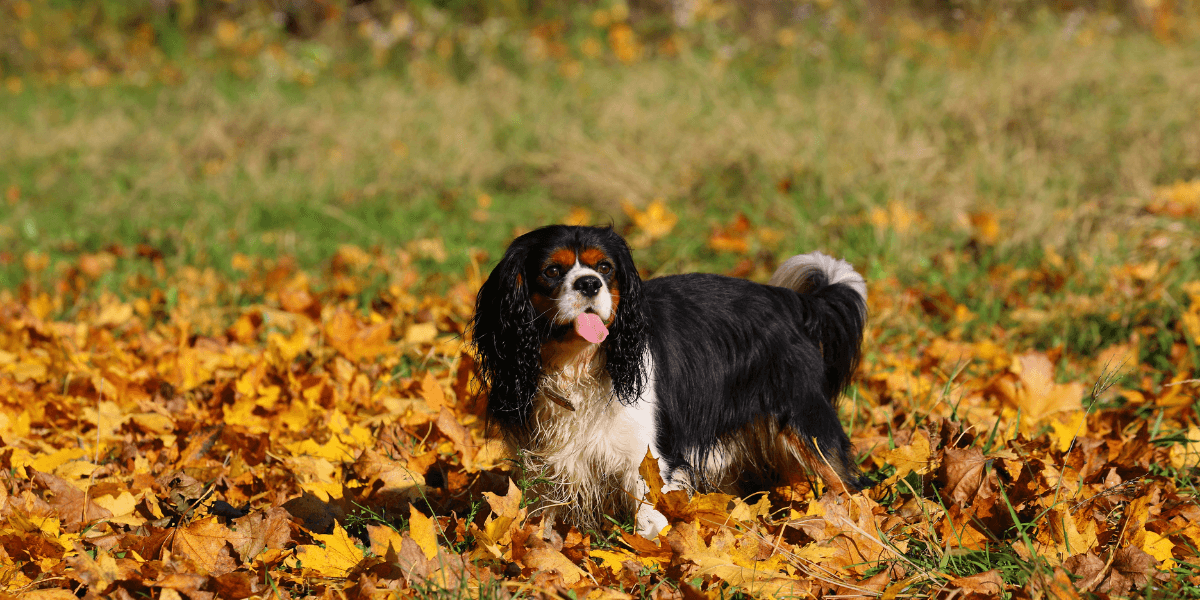
Cavalier King Charles Spaniel's temperament is sensitive to both environment and emotions.
- Emotional Awareness: They can sense when you're sad or stressed and offer comfort
- Environmental Sensitivity: Loud noises or chaotic environments may make them uneasy
- Calming Presence: Their calm nature can have a soothing effect on their surroundings
- Adaptive Behavior: They adjust their behavior based on the mood of their environment
- Clingy Nature: Cavaliers may become clingy if they sense you are upset or anxious
- Attention-Seeking: They may seek extra attention during times of stress or change
6. Potential for Separation Anxiety
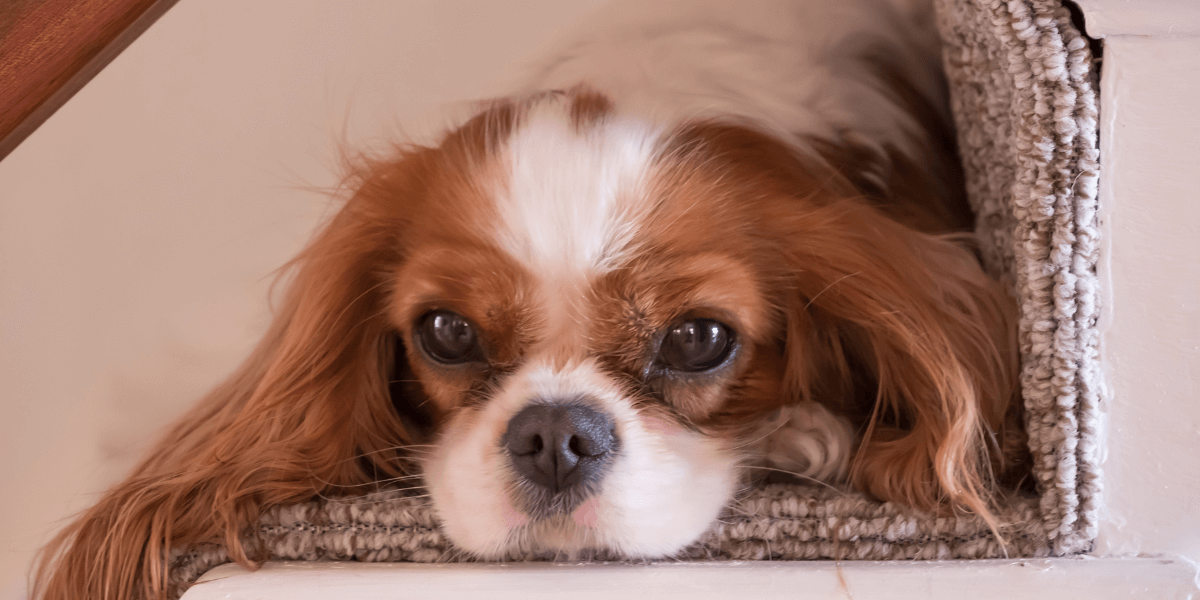
Cavaliers may develop separation anxiety if left alone too often.
- Close Bonding: Their strong attachment to you can lead to anxiety when left alone
- Signs of Anxiety: Look for excessive barking, whining, or destructive behavior
- Preventative Measures: Gradually train them to be comfortable alone for short periods
- Interactive Toys: Use toys that engage them mentally while you are away
- Routine: Establish a routine to help them feel secure when you're not home
- Professional Help: If anxiety persists, consult a veterinarian or a professional trainer
Learn from Great Dane hip dysplasia management to effectively address your Cavalier's potential for separation anxiety.
7. Compatibility with Other Pets
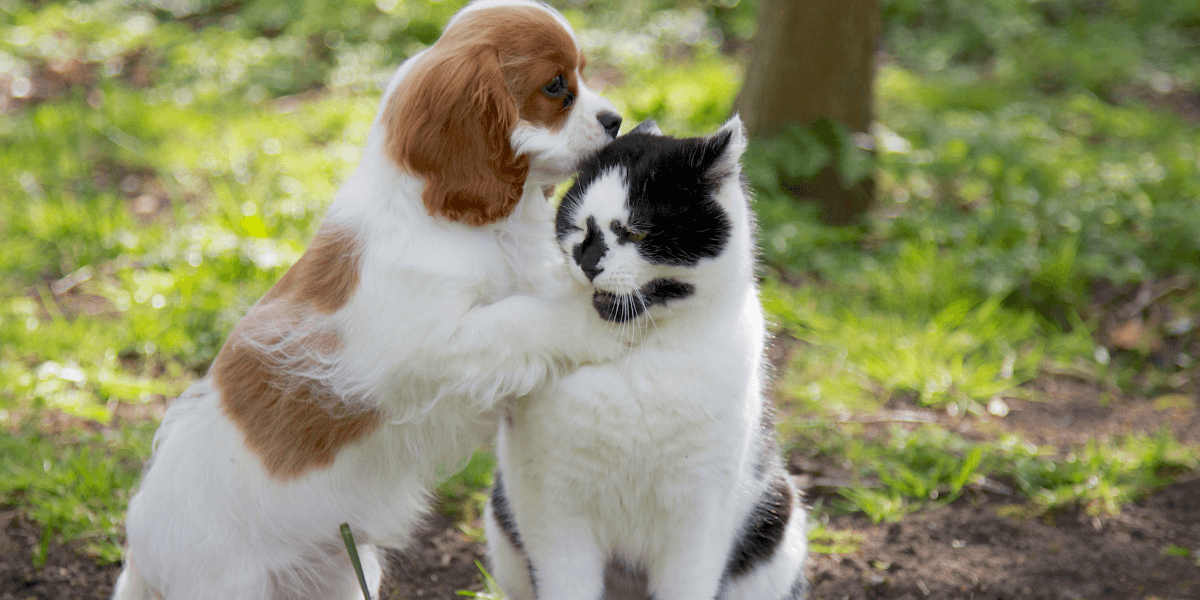
Cavaliers typically get along well with other pets, including dogs and cats.
- Friendly with Dogs: They enjoy the company of other dogs and often make friends easily
- Cat Compatibility: Cavaliers can live harmoniously with cats if introduced properly
- Non-Dominant: Their non-dominant nature helps them fit in well with other pets
- Gentle Play: Their gentle play style is compatible with pets of all sizes
- Peaceful Coexistence: Cavaliers generally avoid conflict with other animals
- Supervision: Initial supervision is recommended when introducing them to new pets
Explore how Bernese Mountain Dogs' compatibility with other pets compares to your Cavalier's friendly nature.
FAQs
1. What is Cavalier King Charles Spaniel's temperament?
- They are affectionate, friendly, intelligent, and gentle, making them great companions
2. Are Cavaliers good with children?
- Yes, they are gentle and tolerant, making them excellent with children
3. Do Cavaliers get along with other pets?
- Cavaliers are generally friendly and can coexist peacefully with other pets
4. Are Cavaliers easy to train?
- Yes, they are intelligent and eager to please, which makes training easier
5. Can Cavaliers be left alone for long periods?
- They can develop separation anxiety, so it's best not to leave them alone for too long
6. Do Cavaliers require a lot of exercise?
- They need moderate exercise, like daily walks, to stay healthy and happy
7. What should I know about their sensitivity?
- They are sensitive to their environment and emotions, requiring a calm, loving home
Conclusion
- Cavaliers offer endless affection, perfect for those seeking a loyal companion
- Cavalier King Charles Spaniel temperament is friendly, ideal for families and other pets
- Training is enjoyable with Cavaliers due to their intelligence and eagerness to please
- Their adaptable, playful nature makes them great pets for various living situations
- Be mindful of their sensitivity and separation anxiety to ensure their well-being
- Consider adopting a Cavalier King Charles Spaniel for a loving and gentle pet!
References
For more info on Cavalier King Charles Spaniel Temperament, check out:

